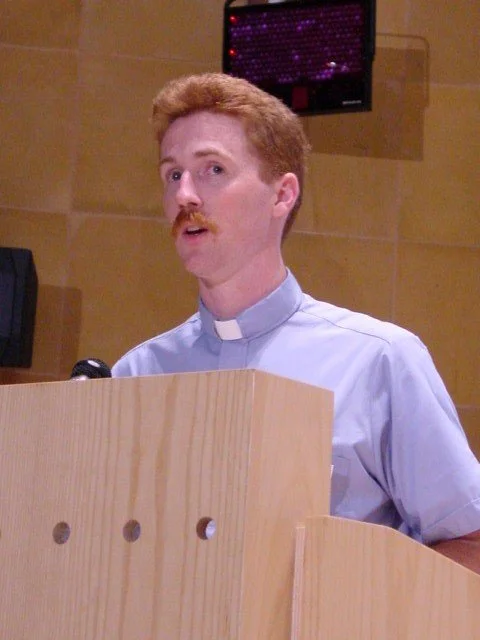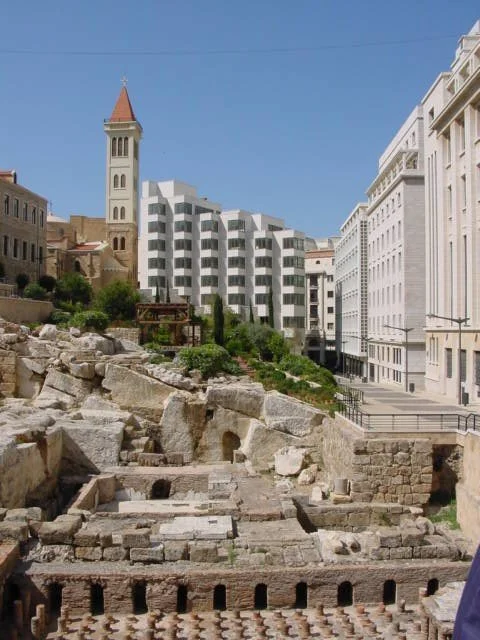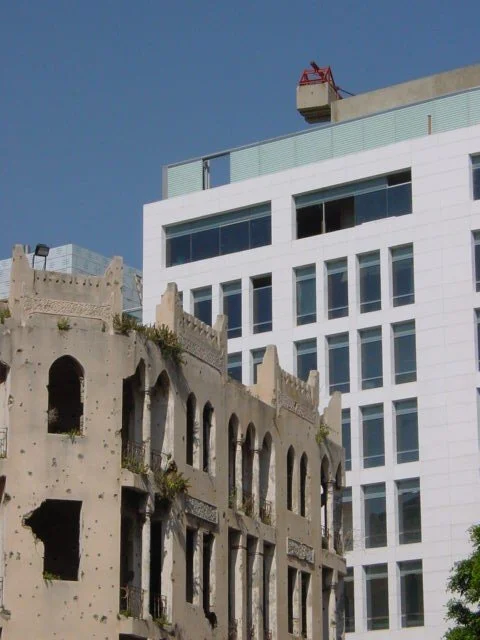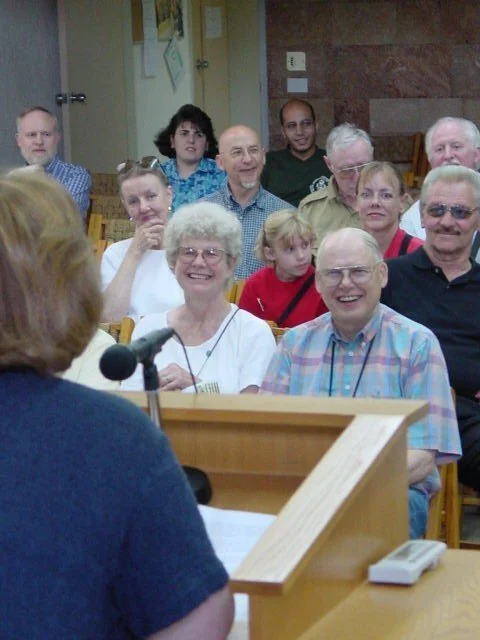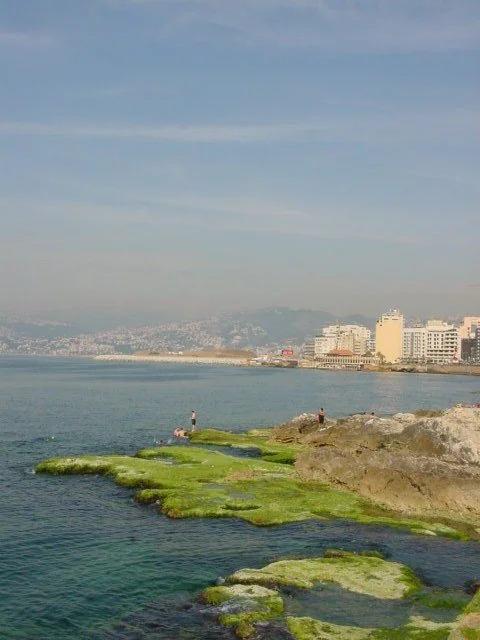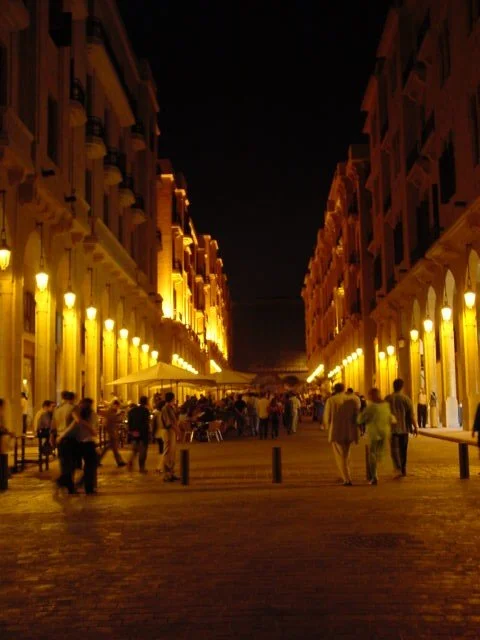May 22, 2002
This morning came twice for Elizabeth: once at 3 when she headed off to her time at the vigil, which she spent in silent prayer, some singing, and focused especially on the Church's ecumenical relations. After an hour, she headed back to bed for a bit, and arose again at 7 in time to grab a bite of breakfast and attend the final ceremonies.
Marthame sharing part of the ecumenical declaration he helped craft.
First we all heard the Conference Statement Marthame had been working on with - among others - an Armenian Bishop, an Egyptian seminary professor, and an American New Testament scholar. From there, we closed with worship and fellowship. We had to bid farewell to some new dear friends, particularly those from the Iraqi delegation. Marthame and the Armenian Bishop of Baghdad had shared many wonderful conversations together. Some of us will be staying for a tour of Lebanon and Syria, including visits to many churches, but many will be leaving soon. And so, it is time for some goodbyes.
The ancient Roman baths with modern Beirut as a backdrop.
After lunch, we headed off to see the city we've had so little opportunity to know over the past four days. Our first stop was to see ruins of an old Roman bath. The floor of it was built above the stoves, supported by columns, so that the steam from the fires would circulate and warm the water. Great engineering.
Construction and destruction sit side by side.
From there, we took a wider tour of downtown. There is a massive reconstruction project underway to repair the damages of the fifteen year civil war. Until 1990, the whole country was torn apart by the fierce fighting of various political and military factions. It has often been portrayed as a Muslim-Christian conflict, but there was much more to it than that - there was Christian-Christian fighting, Muslim-Muslim fighting, the collapse of Cold War alliances, the Palestinian refugee crisis, and a twenty year Israeli Occupation and military offensive. All of this has left the country in shambles, but there is hope that democracy is again taking root and the reconstruction will help the city reclaim its former glory. Now, shot-up buildings stand next to brand new ones. Restored churches are flanked by neglected ones. It's in process, and is a sign of hope to a country that needs it.
What a treat to hear form Dr. Mary Mikhael, President of NEST.
Beirut’s coastline.
We spent some time wandering along the coast before heading up to the Near East School of Theology. Started in the 19th Century by Protestant missionaries, the School has been committed to training clergy and laity alike as has developed quite the reputation as a global center. Names like Colin Chapman and Kenneth Bailey have been involved as faculty over the years. NEST's president, Mary Mikhael, welcomed us along with some of the students and took us on a tour. We had met Dr. Mikhael when she came to First Presbyterian Church of Wilmette before our departure two years ago - it was great to see her again and to see NEST.
Downtown Beirut hops at night.
The American University of Beirut.
The bulk of the group headed back for dinner at sidewalk cafes in the classily-rebuilt downtown. It felt much more like a European than Middle Eastern town, except for the argiles (water pipes). Meanwhile, Elizabeth ventured off to the American University of Beirut, where her uncle taught long ago (1948-51 and a few years in the 60s). By the time she arrived, department offices were closed, but she did get to stroll along the tree-lined paths and enjoy the cool evening, which also brought students outside to play sports, attend a jazz concert or just wander. It was very nice for her to see with her own eyes what she had only imagined from her uncle's stories.

